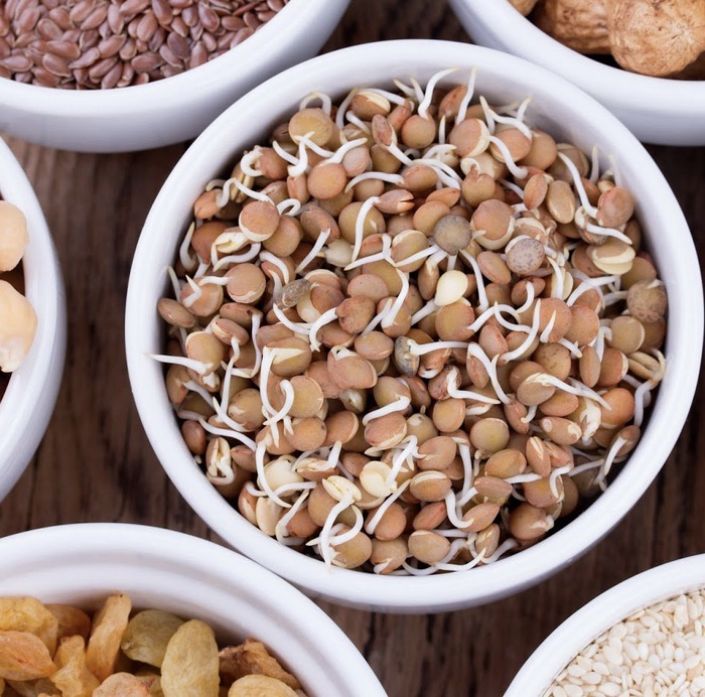Colon Broom
Colon Broom Con - The Unadvertised Truth About This Product That A Lot Of Individuals Do not Have A Clue About
Home
Colon Broom Con - Tell Me Why Is Not One Person Talking About This Controversy
Colon Broom ConGenerally speaking, soluble fibers ferment more quickly than insoluble fibres in the colon. Dietary fiber refers to plant components that are not digested by human digestive enzymes. In the 20th century, only some polysaccharides and lignin met this criteria. But, in the 21st century, resistant starch was added to the list as dietary fiber components. The most common definition of dietary fibre is "all polysaccharides or lignin that are not digested through the endogenous secretion from the human digestive tract". Lignin, a major dietary insoluble fiber source, may alter the rate and metabolism of soluble fibers. Other insoluble fibres, such resistant starch and linseed, can be fermented for short-chain essential fatty acids. These are sources of energy to colonocytes.
Boost Immunity - Warning Signs You Have To Know

Is Metamucil a soluble fiber?
ColonBroom's dietary fiber is generally safe and well-tolerated. ColonBroom may feel a bit bloated when you first start using it. Don't worry! Your body will adjust to the increased fiber intake. The company claims that over 100,000 people have already used its solution. ColonBroom users report that 95% have experienced regular and frequent bowel movements within a few weeks of using ColonBroom. They also lost weight on average for 80% and 90% felt lighter overall.
Is Colon Broom A Good Product
Colon Broom ConGels containing gelatinized starch are used to fill the cells in legumes and cooked potatoes. The cellular structures of fruits and vegetables are foams with a Closed cell geometry with a gel surrounded by cell walls that are composites of an amorphous matrix and complex carbohydrate fibers. Semi-solid foods, fiber, and fat are made up of gel matrices that have been hydrated or collapsing with microstructural elements, such as globules or solutions, or encapsulating walls. Inulin, a prebiotic fermentable fibrous fiber, is metabolized in the gut to produce short-chain fat acids, which increase absorption calcium, magnesium and iron.
Colon Broom Review 2022
Theuwissen E., Mensink R.P. The simultaneous intakes of beta-glucan, plant stanol esters and theuwissen E. affect lipid metabolism for slightly hypercholesterolemic people. Ferrannini E., Barrett E.J., Bevilacqua S., DeFronzo A.A. Effects of fatty acids in glucose production and utilization in the man. Baer D.J., Rumpler W.V., Miles C.W., Fahey G.C. Dietary fiber lowers the metabolizable and nutrient digestion of mixed diets. Modified cellulose can also be reported to affect lipid metabolic processes. Maki et al. Both Maki et.al. observed significant reductions of total and LDL cholesterol for hypercholesterolemic individuals who consumed 5g/d HVHPMC for a period of four weeks. HV-HPMC was found to be able to reduce total cholesterol and LDL cholesterol in subjects who already took statin drugs.
Foods high in fiber can have other health benefits, including helping to maintain a healthy body weight and lowering your chances of developing heart disease, diabetes, or other forms of cancer. Many areas of nutrition can be controversial, but dietary Fiber is not. Fiber, especially soluble, is an important component of any heart-healthy diet. High fiber diets can lower LDL cholesterol, which can increase cholesterol levels.
Colon Broom Label
Riced cauliflower is a popular low-carb alternative to starchy vegetables and can be made into pizza crust and chips. It's a great method to add fiber into your diet, but it may not provide enough fiber to meet the daily recommended intake of 28g. This would mean you would need to eat about 8.5 cups of cooked cauliflower each day. The manufacturer may submit a citizen petition for FDA's consideration that provides scientific evidence of a beneficial physiological effect to human health. It is important to emphasize the synergy between fiber in foods and fiber added to food.
These are good points to begin a scientific journey. However they only offer a broad overview of large groups of people. Descriptive studies can't address all the factors that might explain different rates of disease. While fiber intake may be a factor in the differences in colon cancer rates between countries, it could also be due to other factors, such as diet and lifestyle. A study of over 88,000 women did not show a statistically significant relationship between higher fiber consumption and lower rates of colorectal cancer or adenomas. A 2010 study of 58.279 males found no correlation between dietary fibre and colorectal Cancer. Although not yet officially considered an essential macronutrient for humans, dietary fibrin is an important component of a healthy diet. In many countries, there are regulatory authorities who recommend that we increase our fiber intake.
Colon Broom ConPrevious Next
Top Articles:
Colon Broom Dupe - The Reality
Colon Broom Harvard Medical School - The End Of Lies And The Start Of Truth
Colon Broom Fda - The Facts And Falsehood
Colon Broom Business Insider - Hidden Factual Statements Revealed By The Experts
Colon Broom Usage - Beyond The Rumors
***
Categories
Copyright© Colon Broom All Rights Reserved Worldwide